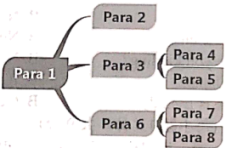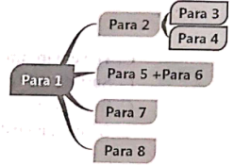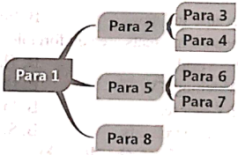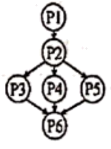1 . ①When it comes to Chinese students considering studying in foreign countries, many of them usually believe that life will be easy and enjoyable. Unfortunately, it’s likely that students with those beliefs will be disappointed very soon after landing at the airport.
②So, what are the problems you may have, and how can you deal with them?
③Teaching and learning styles in America are very different from those in China, requiring more critical thinking(批判性思维) and teamwork. In a normal American classroom, one project might be done by a study group in which every person has his/her own responsibility.
④So don’t worry about your language or any grammar mistakes. Just watch what other students do, and don’t be afraid to ask any questions. The discussions, or sometimes ever arguments, that your group members and you hold are likely to be the beginning of a friendship.
⑤Beside schoolwork, another important thing faced by overseas students is homesickness or loneliness. You may miss your parents’ cooking, your pets, or even your old bed. Being away from home can create bitter feelings, especially when faced with the challenges of getting used to a new environment.
⑥What I strongly suggest is to try hard to deal with these feelings. Be open to new friendships. Sign up for school activities, and give yourself permission to enjoy life at school, even if you miss home a lot. Be organized and keep a diary to check your progress. Write down three new things that you’re grateful for every evening, as well as three things you’re looking forward to every morning.
⑦Studying abroad is never simple. In fact, there will be many difficulties every day. But I’m sure you will overcome your difficulties and make your time overseas a success.
1. The article is written for ________.| A.teachers | B.parents | C.students | D.travelers |
| A.thinking critically alone | B.working in a group |
| C.watching what others do | D.arguing with other students |
| A.Keep a diary. | B.Make new friends. |
| C.Take part in school activities. | D.Write a letter to parents daily. |
| A.①//②③//④⑤//⑥⑦ | B.①②//③④//⑤⑥//⑦ |
| C.①//②③④//⑤//⑥⑦ | D.①②//③④⑤//⑥⑦ |
2 . Once there was a young man who began to feel too good after he succeeded. He was so proud(自负的)that he felt he could do anything easily.
One day, the young man asked a wise man(智者)to climb the mountain together. On the way, the young man kept talking about how good he was, but the wise man just listened to him without saying a word. At the top, the wise man asked, "Look! What do you see below? " "I see trees, farms, houses and people on the firm, " the young man said. "What do you feel?, " the wise man asked the other question. ''Everything is under me. I feel I am very powerful(强大的), " the young man answered.
After a minute, he asked the young man to look up. "What can you see this time?" the wise man asked. "There are different birds and white clouds flying around high mountains, the young man answered. Then he asked the wise man's feelings. UI feel small and powerless, " the wise man answered. "If a person knows there is always the sky over his head, he can understand where he stands. "
The young man disagreed with the wise man. At last, he left angrily and still believed that he was the best.
Just after a few months, the young man lost everything. At that time, he felt sorry for what he said. From then on, whenever he began to feel too good, he looked at the sky. Then he remembered his right place.
1. Why did the wise man ask the young man to look up?| A.To ask him to enjoy the sky. | B.To make him know he is short. |
| C.To let him understand his place. | D.To make him become angry. |
| A.Because he wasn't good at all. |
| B.Because he was too proud. |
| C.Because the wise man didn't like him. |
| D.Because he didn’t look at the sky. |
| A.There is no great man in the world. |
| B.We can look at the sky to enjoy the clouds. |
| C.There is always someone better than you. |
| D.You can’t do anything well if you feel good. |
(①=Para.(自然段)1 ②=Para. 2 ③=Para. 3 /④=Para. 4 ⑤=Para. 5)
| A.①/②/③④⑤ | B.①②/③④/⑤ | C.①/②③/④⑤ | D.①/②③④/⑤ |
3 . Coco is a small rabbit and he lives in a forest(森林)with his mother, Dabai. One morning, he can't find his mother. So he goes everywhere to look for (寻找)her.
Under the tree, he meets Wangwang, a dog. "Where is my mother? Do you know?he asks the dog. "Oh, I'm playing football and I don't see your mother, M Wangwang says.
Coco gets to the grassland(草地). There he see Jiajia, a horse. "Do you see my mother, Jiajia? " he asks. "Sorry, I don't, " Jiajia says. 'I'm eating grass here. "
He is very sad. "Where is my mother?" he is thinking while he is walking. Then he sees Mimi, a cat, near a river. "Hi, Coco, Mimi says to Coco. "I know where your mother is. She thinks I'm her son. Look! She is looking for food for me near the river now. "
At this time, Dabai sees Coco and knows what happens.
1. Jiajia is __________ when Coco gets to the grassland.| A.playing football | B.eating grass |
| C.eating fish | D.drinking water |
| A.near the river | B.in the forest |
| C.under the tree | D.on the grassland |
| A.two | B.three | C.four | D.five |
| A.①;②;③④⑤ | B.①;②③;④⑤ | C.①;②③④;⑤ | D.①②;③④;⑤ |
4 . ①Amy and Susan both live an average(平常的)life. They have an average house, an average job and an average family. There is really nothing special about their lives, but there is also nothing really negative(消极的)about their lives.
②However, when they are both happy, it always seems that Amy is happier than Susan. It looks like nothing can trouble Amy. She is the life of the party and always has a big smile on her face.
③ Susan can't stop thinking about this. How is Amy so happy when they both lead such similar lives? They go to the same stores, watch the same movies, even have similar schedules! How can Amy be so carefree when life is so stressful?
④Between one's daily life and personal dreams, there is no way one can be so happy and stress-free all the time. There are always a million things going on.
⑤But when Susan asks Amy about this, Amy says, " I just take life as it comes. It seems pretty easy then. "
⑥__▲ How is it that Amy's life seems so much better most of the time?
⑦The problem with Susan is that she spreads herself too thin. Not physically (身体上),but in her own head. While she tries to do everything at once and think about everything at once, Amy takes everything one step at a time. She is where she is, stays present in the moment and allows herself to focus on(关注)just one thing at a time.
⑧When you live each moment to its fullest, when you deal with where you are and are present in the now, most of your stress will go away.
1. What might be the Chinese meaning of the underlined word "carefree"?| A.粗心的 | B.关心的 | C.无忧虑的 | D.仔细的 |
| A.So Susan is always less happy than her friend Amy. |
| B.So what is the difference between these two friends? |
| C.So what is the result of these two friends' experience? |
| D.Let me give you some examples about these two friends. |
| A.①④⑤/⑥⑦⑧ | B.①②/③④⑤⑥⑦/⑧ |
| C.①②③/④⑤⑥/⑦⑧ | D.①②/③④⑤/⑥⑦⑧ |
| A.Take life one step at a time | B.How to stay healthy under stress |
| C.What we can learn from friends | D.Let's become an average person |
5 . ①From economy (经济) to technology, from sports to culture, China has made progress in many areas in the past seventy years.
②Over the past 70 years, China has achieved rapid economic growth.
③In 1978, China's GDP was 11th in the world. In 2001, China became a member of the World Trade Organization. Since then, the country has been doing more and more business with the rest of the world. Today China is the world's largest exporter(出口国)and the second largest importer (进口国). Since 2010, China has been the second largest economy in the world.
④In 2013, President Xi Jinping came up with the Belt and Road Initiative. In the past few years, more than 100 countries and international organizations have joined it. It has created more than 300,000 jobs in different countries.
⑤China has built the world's biggest high-speed rail network. The trains have attracted millions of travelers, as they are fast, comfortable and safe. And planes made in China are popular.
⑥China is also working on the development of AI (人工智能). China may become the center of AI innovation (创新) by 2030.
⑦Today, China is a sports superpower. Many Chinese athletes have become famous on the world stage, such as Yao Ming and Li Na. In 2008, Beijing held the Summer Olympic Games. It is also going to hold the 2022 Winter Olympics.
⑧More and more people around the world are becoming interested in Chinese culture. They visit China and learn Chinese. Also, China has set up 536 Confucius Institutes in more than 150 countries. A lot of foreign students are learning Chinese language and culture there.
1. Today China is ________ in the world.| A.the second largest exporter | B.the largest importer |
| C.the largest country | D.the second largest economy |
| A.two | B.three | C.four | D.five |
| A.invite visitors around the world | B.talk about Chinese culture |
| C.praise China for its great progress | D.encourage Chinese to work hard |
A. | B. |
C. | D. |
6 . ①How would you feel if someone decided to take away your park? Well that's what's happening in my community. There's a park that some people want to turn into a golf course (高 尔夫球场). Let me tell you why I think it's a bad idea.
②First, a community park should open for everyone. But not everyone likes golf, so not everyone will get to use the court.
③Second, to build the golf course, lots of playground equipment will have to be moved or knocked down, which is a waste (浪费)of time and money.It’s also a waste of good equipment.
④Third, what about giving young people something to do? Not all kids are fond of golf. At the moment, the park has a skating place and a playground, which children like a lot. If you turn the park into a golf course, these kids won't have anywhere to go and anything to do. This means that they will stay at home and turn on a video game instead of getting some exercise. It also means that they might be out on the street causing trouble. Wouldn't it be better to give them something to do at the park?
⑤Finally, golf is expensive. Building and maintaining(维护)a golf course cost a lot of money. Who is going to pay to maintain the golf course?
⑥Turning our park into a golf course is a bad idea. I suggest we have a community meeting before plans go any further.
1. Some people want to change the park into ________.| A.a golf club | B.a golf course | C.a park | D.a skating place |
| A.go to get some exercise | B.play golf with their friends |
| C.play video games at home | D.go to the street and make friends |
A.  | B.  | C.  | D.  |
| A.to make plan for building the golf course | B.to make the park more beautiful |
| C.to ask children to go skating | D.to stop building the golf course |
7 . ①Nowadays, lots of young people have problems with their minds. These problems not only hurt the students’ health but also make their parents and teachers very worried. And these problems have caught people's attention.
②Ma Qingyu, a student from Shandong, could not understand his teacher and was doing badly in his lessons. He became so worried about it so that he started to lose appetite(胃口).
③Another student, 16-year-old Zhang Ni from Zhejiang, was afraid of exams. She got very worried in exams. And when she looked at the exam paper, she couldn't think of anything to write.
④These are just two examples. A recent report from China Daily says about 14% of Beijing teenagers have mental problems. Their troubles include(包括)being worried and very unhappy, and having problems in learning and getting on with people. Many students who have problems won't go for advice or help. Some think they will look stupid if they go to see a doctor. Others don't want to talk about their secrets.
⑤An expert(专家)on teenagers from Huashan Hospital has the following advice for teenagers.
*Talk to your parents or teachers often.
*Take part in group activities and play sports.
*Go to see a doctor if you feel unhappy or unwell.
1. Ma Qingyu lost his appetite because __________.| A.he was afraid of his teacher | B.he was so worried about his studies |
| C.his parents did badly in cooking | D.he wanted his parents to care about him |
| A.身体的 | B.心理的 | C.情感的 | D.学习的 |
| A.teachers and parents can't do anything about mental problems |
| B.some students don't think doctors can help them |
| C.only group activities and sports can help them |
| D.it's necessary for the students to be with others |
(①=Para. (自然段)1 ②=Para. 2 ③=Para. 3 ④=Para. 4 ⑤=Para. 5
| A.①;②③;④⑤ | B.①②;③④;⑤ | C.①;②③④;⑤ | D.①②③;④;⑤ |
8 . The relationship (关系) between teachers and students is an important part of school life. An Indian movie called Hichki tells the story of a teacher who helps some bad students and makes them better people. It is popular with lots of students now.
In Hichki, the main character is Naina Mathur. She has an illness (疾病) that makes her hiccup (打嗝) often. With her hard work, she gets her dream job as a teacher. But she has to teach a class of rebellious students. They laugh at Mathur in her first class.
However, Mathur doesn't get angry (生气) with them. She tries her best to help every student. When they cause a small explosion (爆炸) and the school asks them to leave, Mathur still help them a lot. Little by little, Mathur wins the students' hearts. Under her care, the students start to study harder and become better and better.
From the story, we know that good teacher doesn't simply pass on knowledge (知识), but shows students how to be a good person. It also shows us that anyone can be successful, even if they have some kind of illness.
1. Naina Mathur has an illness and she often ________.| A.hiccups | B.get angry | C.laughes at others | D.sleeps for a longtime |
| A.狡猾的 | B.搞笑的 | C.叛逆的 | D.乖巧的 |
| A.Naina Mathur's dream job is to be a teacher |
| B.the students doesn't like Naina Mathur at the very beginning |
| C.Under Naina Mathur's care, the students become better and better |
| D.Naina Mathur is a good teacher who only passes on lots of knowledge to her students |
(①=para.1 ②=para.2 ③=para.3 ④=para.4)
| A.①②; ③④ | B.①; ②; ③④ | C.①; ②③; ④ | D.①; ②; ③; ④ |
9 . ①Experts believe that there are more than 8 million restaurants in the world today. So it might surprise you to learn that restaurants, as we know them, have only existed for a few centuries. Before 1765, there were no restaurants. That is, there were no places that provided the restaurant experience. There was nowhere in which a waiter brought you food and drink that you picked from a menu. In fact, there were no menus anywhere.
②There were eating places travelers could go to centuries before that. The countryside was full of inns(旅店) that would serve food. And there were taverns(酒馆) where one could get drinks. The rich could also eat special meals prepared by private cooks. But none of them could be called a "restaurant".
③A man called Boulanger changed that. In 1765, he opened a place in Paris that sold soups. On his sign he used the word "restaurant" to describe what he was selling. At that time, soups were considered something that could help "restore" (恢复) your health—in French the word "restore" is "restaurer"—so he called the soups "restaurants". Soon, people started buying Boulanger's soups even when they were not ill. And over time, people began to use the word "restaurant" to refer to a place selling soup rather than the soup itself. More "restaurants" opened in France, and people began to buy soups more often.
④Later, restaurants in Paris began to serve other food besides soup. In the 1790s, menus started to appear. By the mid-1800s, there were many types of restaurants throughout the world. The United States offered coffee shops. Tea houses became popular throughout China. Paris created beautiful restaurants for the rich. The British began to copy the French, and the restaurant idea spread throughout the British Empire.
⑤Today, cities are filled with all types of restaurants. Diners have millions of options from which to choose.
1. What is the passage mainly about?| A.How restaurants developed. | B.What made a good restaurant. |
| C.Who created the first restaurant. | D.Why restaurants became popular. |
| A.Restaurants only served food. | B.Restaurants were more expensive. |
| C.Restaurants were mainly in cities. | D.Restaurants had a list of meal choices. |
| A.Rich people. | B.Sick people. | C.Travelers. | D.Workers. |
| A.①②-③④-⑤ | B.①-②③-④⑤ | C.①-②-③④-⑤ | D.①②③-④-⑤ |
10 . Do you have a lucky number? What is it? Many people have a special number that they hope will bring them good luck.
In Chinese culture, some numbers are believed to be lucky or unlucky based on the Chinese word that the number sounds similar to.
For example, the word for the number 8 sounds similar to the word for “making a fortune”. So, people consider it a very lucky number. Some people will even spend a lot of money to have 8s in their phone number or on their vehicle license plate (车牌照) number. The opening ceremony of the Beijing Olympics began at 8:08 pm on Aug 8, 2008.
The number 9 is also a lucky number because of its connection to the emperors of China. There were nine dragons on emperors’ robes (龙袍) and Chinese myth held that the dragon had nine children. The number 9 also stands for “long lasting”. That’s why a man always proposes (求婚) to a woman with 99 or 999 roses.
So what’s an unlucky number in China? One example is 4. Many Chinese people see 4 as an unlucky number because it sounds similar to the character for “death”.
Because of this, many buildings skip (跳过) the fourth floor, and simply call it the fifth floor. In Hong Kong, some buildings even skip all floors numbered with 4, such as 4, 14, 24, 34 and all 40-49 floors. Some buildings also skip the 13th floor, as this is considered an unlucky number in the West. As a result, a building whose highest floor is 50 may have only 35 physical floors.
1. What makes Chinese people believe a number is lucky or unlucky?| A.The shape of the number. | B.The sound of the number. |
| C.The history of the number. | D.The spelling of the number. |
| A.35 | B.44 | C.50 | D.60 |
(①=Paragraph 1 ②=Para. 2 ③=Para. 3 ④=Para. 4 ⑤=Para. 5 ⑥=Para. 6)
| A.①; ②③④; ⑤⑥ | B.①②; ③④⑤; ⑥ |
| C.①②; ③④; ⑤⑥ | D.①; ②③④; ⑤⑥ |
| A.Lucky and unlucky numbers in Western culture. | B.Meanings of different lucky numbers. |
| C.Meanings of different unlucky numbers. | D.Lucky and unlucky numbers in Chinese culture. |



